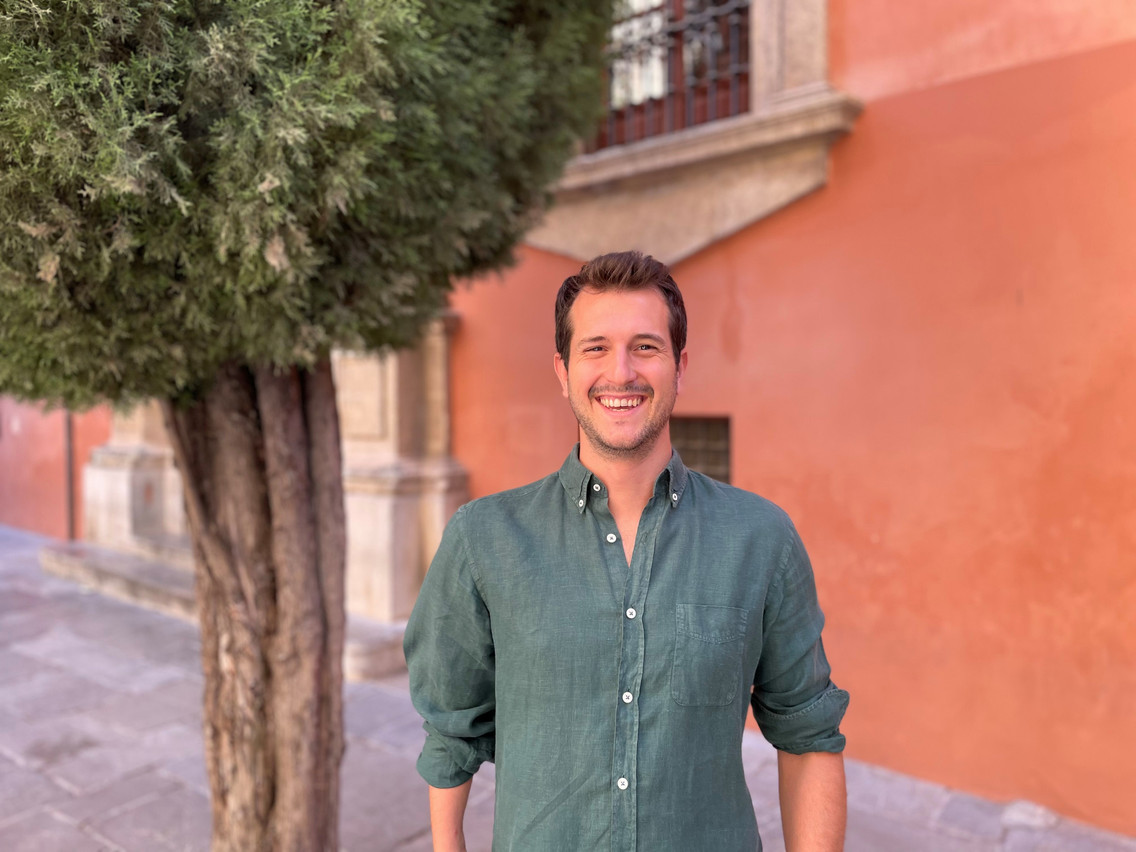When I first met Guillermo Ortega Garcia in early 2019, he had recently quit the job that brought him to Luxembourg to establish Natural Vibes, a young business with a colourful range of fun socks made from organic cotton and recycled acrylic, sourced and manufactured in Turkey.
It was a time when socks were becoming the must-have statement accessory, particularly for men-media organisations fighting over themselves to give space to photos of Canadian prime minister Justin Trudeau’s latest whacky pair.
“I didn’t know how people would react to my brand. I started going to a lot of eco- and vegan markets in Luxembourg and Germany. The response was very good,” the Spanish entrepreneur recalls.
Since then, Natural Vibes has exploded: the entrepreneur sells on French fashion market place Zalando, which is present in 11 markets, he manufactures 120,000 pairs per year and is now studying the possibility of expanding into sustainable sneakers. His secret—first mover advantage.
“It’s incredible how much the market has changed since we last talked. In the last two years it became almost compulsory for brands to be sustainable,” he explains.
When setting up the business, Ortega Garcia took time to find the right manufacturing site and material sources, so he could secure the sustainability certification. Since consumers are now more likely to ask questions about who made their clothes, he is reaping the rewards. “I think people liked supporting a local brand and being confident their money was going into a good product. These are people who care about the environment, the factory and where the product and materials were coming from,” he says.
In the last two years it became almost compulsory for brands to be sustainable
Covid brought another dynamic to the business model. On the one hand, Ortega Garcia says he experienced a tough four months when shops were closed, on the other, it forced him to explore more online sales outlets. Thanks to a government emergency grant of €5,000, he was able to invest in more expert online marketing and hired some freelance support. Natural Vibes were first featured on Zalando in September, after several months of discussions. “That was a good decision,” says Ortega. Today, Zalando is his main online sales outlet after his website.
Supply chain disruptions
Natural Vibes was left mostly unscathed by pandemic-related disruptions to manufacture and logistics, thanks to the choice to manufacture in Turkey as opposed to China. Nevertheless, there were some blips. “The factory in Istanbul had to close for two weeks”, he says, adding: “And even now it’s hard to find cotton with the Delta variant.” For the entrepreneur, the pandemic is a harsh reminder of the need to respect and protect the natural environment. Conscious that even the most sustainable textile manufacturing process involves some level of extraction, his company invests in tree planting, his way to “give back somehow”.
Otherwise, Ortega Garcia reflects on how tough it is to succeed in the competitive world of fashion. If he wants to sell through traditional shops, he has to land a sales agent, the gatekeepers of the retail world. “It’s really hard to get to know them,” he sighs. Online consumption trends have, however, democratised the sector. “If the products are good, people will buy.”
The entrepreneur now turns his focus to brand development and growth, a prospect which he says is “scary” compared to when he was starting out. “Now, when I see the numbers, it’s not only buying socks, it’s an investment in marketing, finding the right people to work together…” he pauses. “What happens if suddenly people don’t buy socks anymore?”.

